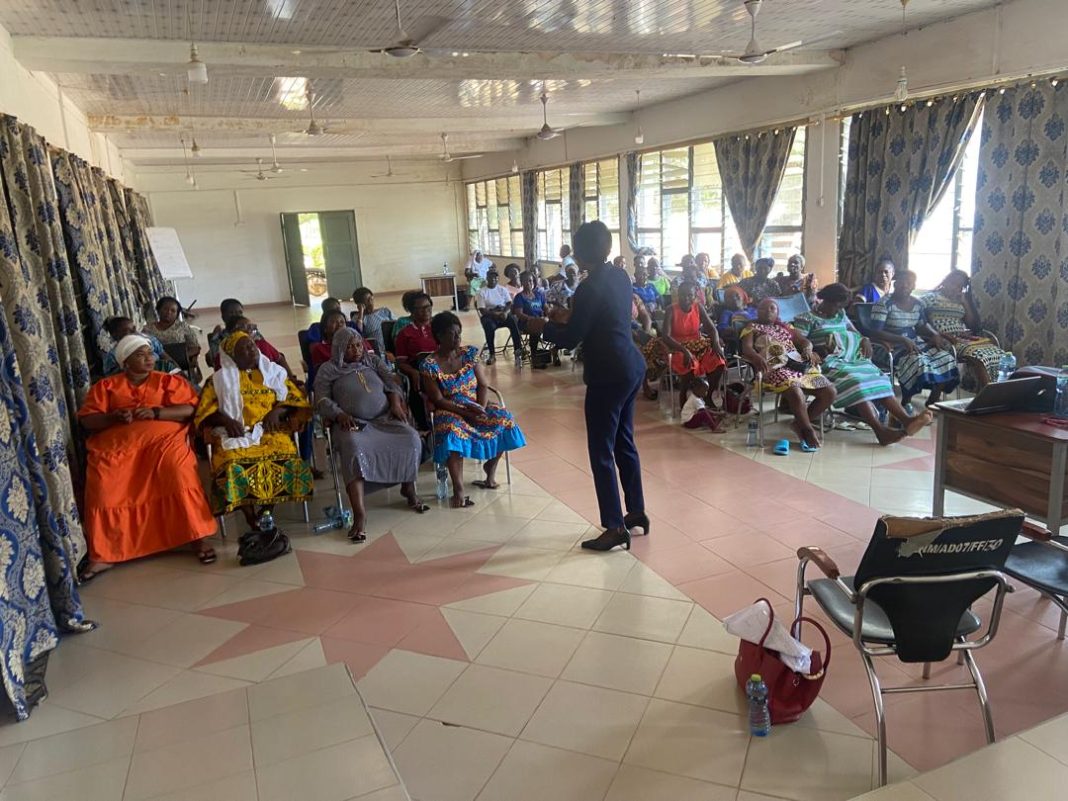Women’s groups from various associations and communities across the Kassena Nankana Municipality have been charged to actively promote transparency, accountability, and respect for the rule of law in their communities.
This call was emphasized at a civic education programme held on the theme: “Civic Engagements on the Rule of Law and the Fight Against Corruption: Educational Campaigns for Women Groups.”
The programme took place at the Kassena Nankana Municipal Assembly Conference Hall and brought together women leaders and representatives from associations including the Tailors and Dressmakers Association, United Hairdressers Association, Widows Association, Susu Groups, and religious women’s groups from the Catholic Church, Church of Pentecost, and the Muslim community. Market women and community representatives from Gaani, Nawognia, Vunania, Doba, Pungu-Telania, Bavugnia, Nogsenia, and Wuru/Nawognia also participated. Officials from the Domestic Violence and Victim Support Unit (DOVVSU), the Commission on Human Rights and Administrative Justice (CHRAJ), the National Commission for Civic Education (NCCE), the Municipal Assembly, and the media were also in attendance.
Speakers acknowledged the critical roles women play as caregivers, entrepreneurs, traders, and leaders in Ghana’s socio-economic development, while stressing that corruption continues to hinder their progress. They noted that women are disproportionately exposed to corrupt practices such as bribery, sexual extortion, and unfair treatment in accessing public services including healthcare and education.
Mr. Abdul-Gafaru Issahaku, the Municipal Director of CHRAJ, led participants through key topics such as Rule of Law and Women’s Rights, Forms of Corruption, and Legal Protections and Reporting Mechanisms. He highlighted important laws including the Domestic Violence Act, Right to Information Act, Special Prosecutor Act, and Whistleblower Act, urging women to report abuses and uphold integrity, noting that “the rule of law is the oxygen of democracy.”
On her part, ASP Mariam Awemoni, the Regional Coordinator for DOVVSU, called on women to build confidence, assume leadership roles, and boldly advocate for their rights and the welfare of their peers. She described corruption as a “silent thief” that robs nations of development opportunities and encouraged women to confront corruption in their homes, markets, and communities.
She further emphasized the need for women to stand united, saying their collective voice is crucial to transforming systems and governance. “Women must be the perpetual support base for their peers and rise to leadership positions to effectively champion development,” she said.
The programme, supported by the Deutsche Gesellschaft für Internationale Zusammenarbeit (GIZ) and the European Union (EU), concluded with a renewed commitment to building integrity-driven communities where transparency, justice, and accountability thrive.
Source: A1Radioonline.com|101.1 MHz|Moses Apiah|Bolgatanga


